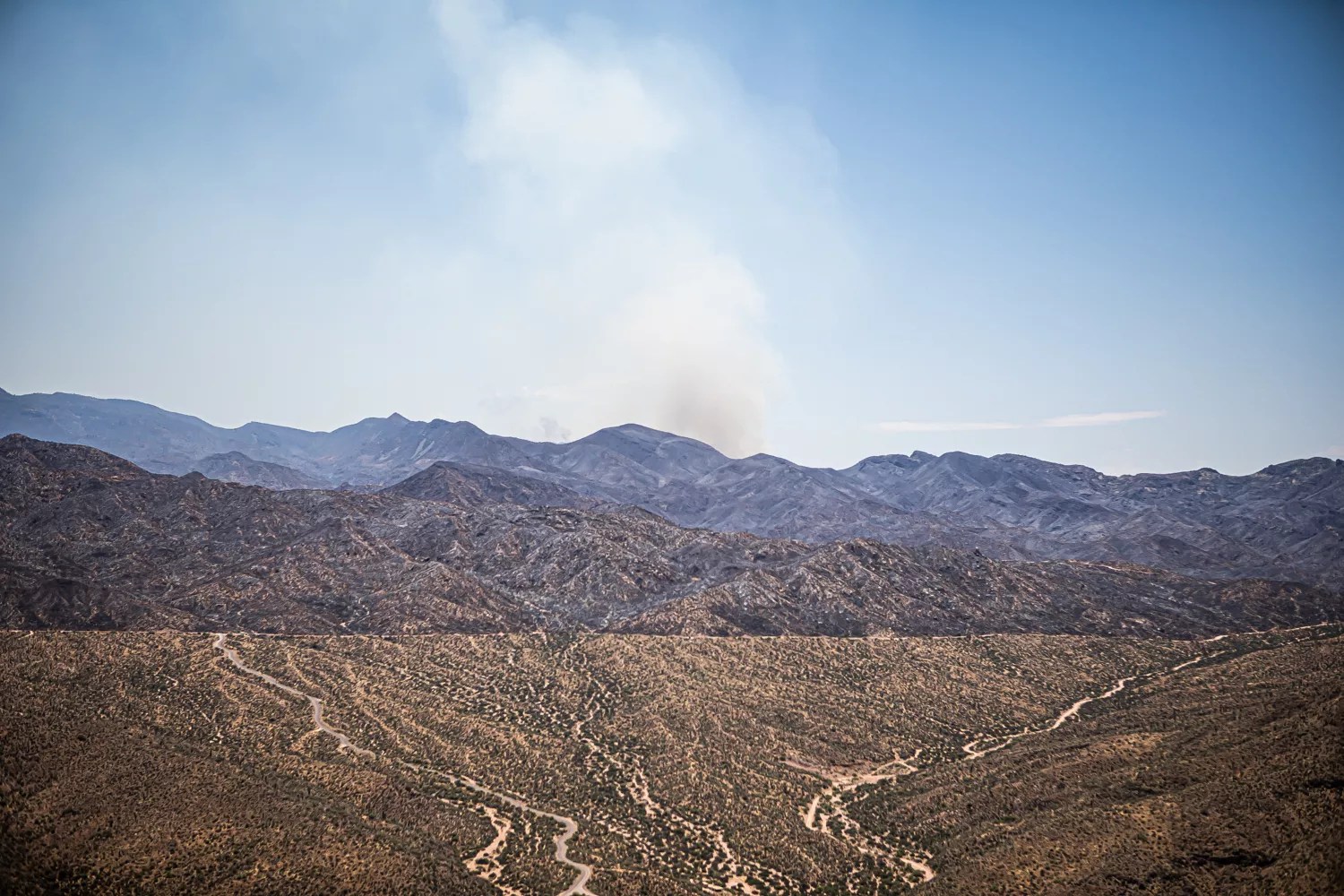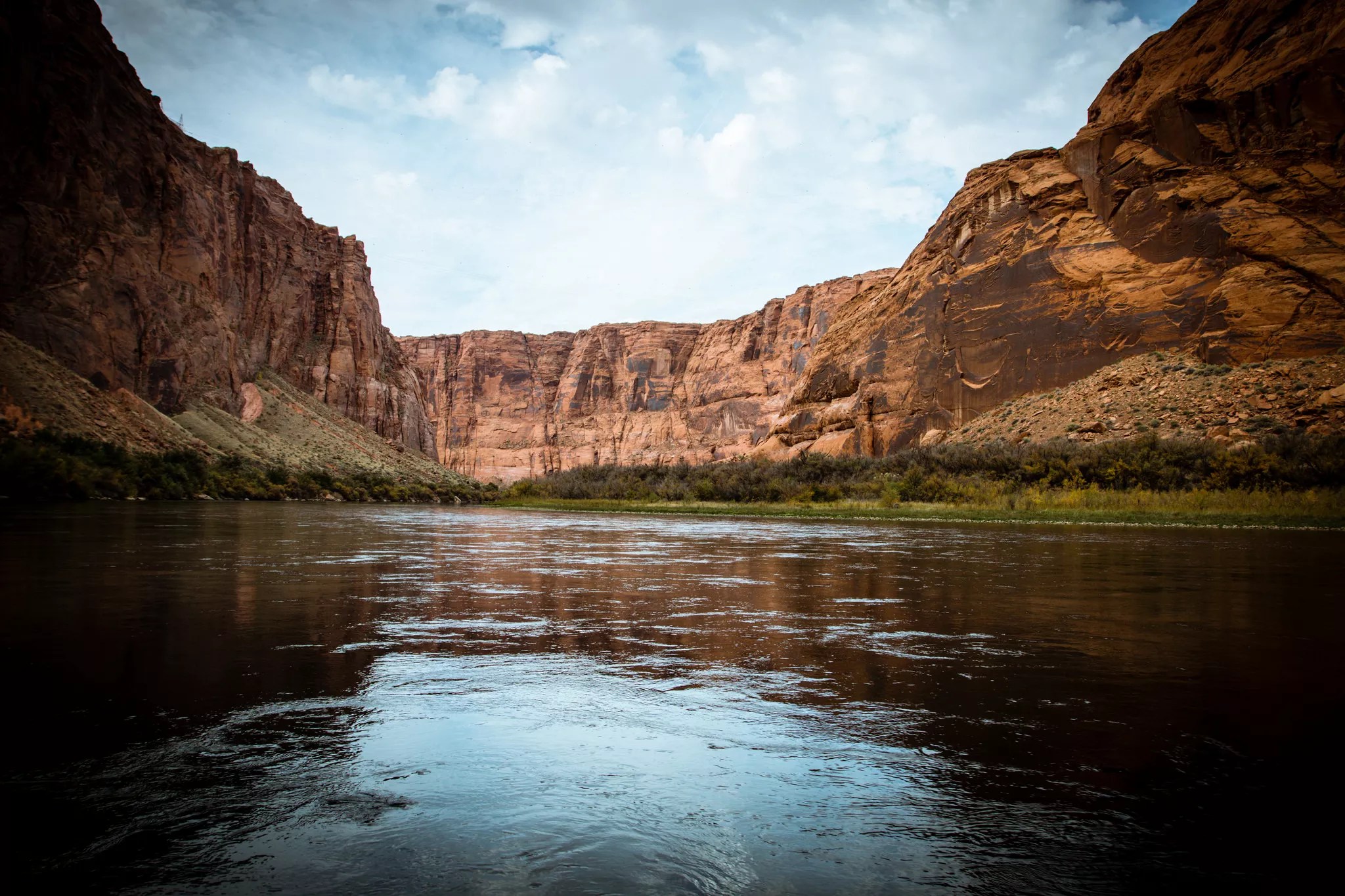
Jim Louvau

Audio By Carbonatix
Activists in Arizona want Phoenix to join Flagstaff, New York City, and hundreds of other cities around the world by declaring a climate emergency.
Ten local climate, environment, and social justice groups, including Extinction Rebellion, Sunrise Movement Phoenix, and the Sierra Club, plan to request such a declaration from the Phoenix City Council during a press conference on Monday.
Pointing to Phoenix as a hotspot on a warming planet, they warned in an announcement released on Thursday that “Heat-related deaths are increasing, wildfires are becoming more intense and frequent, development and decades of drought are decreasing flows in our rivers, and the Valley is choking on some of the worst air pollution in the country – all exacerbated by climate change.”
They want to see the City Council pass a resolution with a declaration of a climate emergency, launch a plan to address climate change, and commit to Phoenix becoming entirely carbon-neutral by 2030 – 30 years sooner than the city’s current goal for carbon-neutrality.
They also want a new task force to oversee it all.
As the city clerk’s office confirmed, the groups are in the process of formally submitting a citizen petition as an agenda item for a City Council meeting, said Jean Boucher of the group Extinction Rebellion.
Whether a climate emergency declaration in Phoenix, the largest city in Arizona and the fifth-largest in the U.S., would prompt substantial change or largely stand as a symbolic move remains to be seen.
Boucher, a post-doctoral environmental sociologist at Arizona State University who studies the ties between people’s attitudes about climate change and their lifestyles and behaviors, was clear-eyed but hopeful about the prospects of such a declaration in a state whose Republican governor avoids using the phrase “climate change.”
“We’re not blind to the fact that getting Phoenix to declare a climate emergency is a challenge,” he told Phoenix New Times.
But, he added, if Phoenix did make such a declaration, it would at least prompt more discussion, and perhaps even action.
“How are we going to be human differently on the planet? We need to start asking these questions,” he said. At the very least, Boucher hoped, the city would be forced to update its resiliency plans – strategies to mitigate the impact of climate change – even as he called on the city to implement a carbon tax.
The rest of the group’s wish list, like being carbon-neutral by 2030, seem about as feasible in this city as the prospect of, say, banning cars.
Nevertheless, Jessica Bristow, a hub coordinator with Sunrise Movement Phoenix, said the carbon-neutrality goal could be “easily achieved.”
“The majority of emissions that the city puts into the atmosphere is from transportation,” she said. “So if we can create a carbon-neutral transportation system, that would be awesome.”
Yet it’s hard to imagine the system that Bristow envisions to achieve carbon-neutrality – a network of high-speed trains throughout the Valley – happening in Phoenix and the surrounding cities.
According to city data, transportation accounted for 60 percent of the city’s own greenhouse gas emissions in 2016 – up from 52 percent in 2012. But, in that time period, overall emissions of greenhouse gases, which trap heat in the atmosphere, declined by 7.2 percent, the city says. Most of that decrease came from the stationary energy sector, or electricity generated through fossil fuels.

The American Southwest is in a prolonged drought that is affecting water supplies like the Colorado River.
Bristow said that asking the city to declare a climate emergency was both symbolic and action-oriented.
“People in Phoenix want action,” she said. “That’s why we started to pressure the city to see if they’ll do this very small thing of declaring a climate emergency.”
From there, she said, the city could develop a comprehensive climate action plan. Activists would continue to organize, and “if we can organize to the point where we’re stopping business as usual in the city of Phoenix, then they’ll be obligated to do something.”
The city did develop a climate change action plan way back in 2009. In it, city officials said the plan could reduce the city’s greenhouse gas emissions by increasing the energy efficiency of buildings and vehicles, using more renewable resources, and promoting alternative modes of transportation.
“The City of Phoenix has displayed leadership and foresight in choosing to confront this issue now,” that plan concluded.
Since then, in 2016 the city adopted eight, very long-term goals for “environmental sustainability” that it has until 2050 to achieve, in realms including transportation (“make walking, cycling, and transit commonly used and enjoyed in every Phoenix neighborhood”), waste (“In 2050, Phoenix will create ZERO WASTE through participation in the ‘Circular Economy'”), and land use (after 2050, “all new buildings will be ‘net-positive’ in terms of energy and materials, meaning they will produce more energy than they consume.”)
Phoenix Mayor Kate Gallego told New Times that the city had made “significant strides” toward meeting these goals, noting that in January, the city joined a network of nearly 100 other cities worldwide that are dedicated to fighting climate change.
“Climate change, and a warming planet, threatens public health, infrastructure, and our economy. Issues of extreme heat and poor air quality – if unaddressed – will have severe repercussions and hinder our city’s continued success,” Gallego said. “The City of Phoenix is fully committed to addressing this challenge head on.”
To Boucher, Phoenix is way behind in fighting climate change, but it doesn’t have to stay that way.
The city should have had a carbon tax “at least 20 years ago,” he said, a lag he attributed to pushback from powerful industries, including the fossil fuel sector. It could create other structures to push people to lower their carbon footprints, and it could do much more with solar power, he said.
For example, people who have low incomes tend to have small carbon footprints, because they don’t travel or consume as much as others, whereas wealthier people who travel and spend more have larger carbon footprints, Boucher said.
He suggested that a personal carbon allowance, which has never been adopted anywhere, that gives poorer people who contribute less to greenhouse gases credits but penalizes people “living beyond their means in terms of a carbon budget.”
Phoenix could and should also become more compact, Boucher said. Where people live, work, and socialize needs to be more concentrated, he elaborated, envisioning spaces where a person could walk to everything they needed in 20 minutes, rather than being dependent on cars.
For now, the groups are focused on getting Phoenix City Council to declare a climate emergency. After that, they’ve set their sights on the governor’s office.